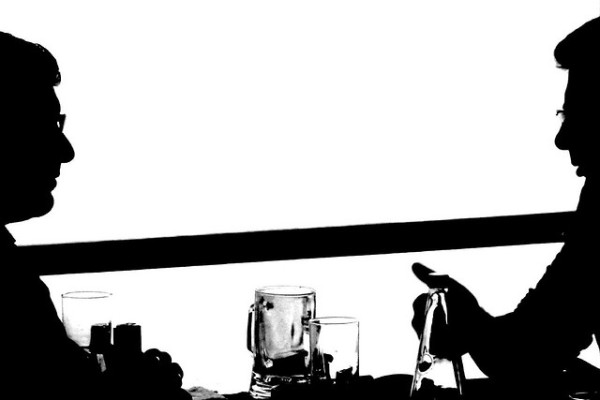I’m trying to articulate something in my head and this is a poor first stab. Argue with me if you like, it might help me.
In spite of the differences that seem to characterize our national politics, I would suggest that we are more alike than different. Politics is a bit like a long, slow conversation across space and time. It is part of a larger cultural conversation that helps define and shape the future.
I didn’t watch both conventions this year, but I usually do. If you can silence your emotions temporarily, I think you might be amazed by the similarity in both parties and both conventions. From the heights of dramatic oratory to the depths of attack politics, there are always striking similarities. They both are talking from the same narrative.
This a narrative that gives both parties speaking points. Parties make focus upon different themes, develop different plotlines and seem to say different things, but actually I think they are limited by the constraints of a meta-narrative that exists within our national consciousness.
Just like any conversation, this national conversation requires give and take, listening and speaking. Since we’re not a fascist state, you can’t just stuff a sock in someone’s mouth if you don’t like what their saying. I wonder if we realized how similar we are and how slow change takes (decades if not centuries), that we might play a role in the conversation without throwing a tantrum when our dreams of reformation are not realized overnight like Jack’s beanstalk.
This is a terrible simplification that needs more work, but here are some essential elements in the American narrative that may or may not show up in the narrative of another nation: religion, the future, nature/ecology/land, peace/war/violence, national/individual identity
Religion – Robert Bellah has suggested that the religion in America is the worship of the individual. Whether Christian, Atheist, Buddhist or more, American are deep individualists. In fact, so deep we can barely grasp the consciousness of other culture who do not revolve around the individual.
Within this context, I would suggest that Christianity has played a dominant role in the national conversation. But in a very different way than Europe. Historian Mark Noll suggests that American Christianity has always been a populist movement whereas in Europe it was a classicist movement.
There is a fascinating tension in the role of Christianity/religion between the public and private sphere, which is very different than other nations. Americans are never really sure what role religion is allowed to play. We fear any one group ruling and defining religion for everyone else since the individual is enshrined as our true divine.
Strangely, even our atheists seem exalt the individual to a virtual divine position. Even our atheism looks a bit religious. I’ve read some European atheists refer to English and American atheists as “Christian atheists.” Where else do those who believe in a god and those who believe in a “no god” feel the pressing need to make our “declaration of faith.”
Future – Americans love to talk about the future and change. Listen to any speak from virtually any point, and you’ll see that Americans are always “building bridges to the future.”
Natural World – I think that Americans have been trying to negotiate the role of the natural world in our narrative for at least 100 hundred years, starting with Teddy Roosevelt. We spent the 20th century trying to move the narrative beyond the narrative constraints of the Industrial revolution.
We still may not agree on particulars but I think the 21st century will redefine our narrative relation with nature that is beyond the Industrial revolution.
Peace/War/Violence – Americans like to think we’re pacifists, but trust me we’re not. We’re a violent nation. Even our peace activists are violent. A conversation on war is part of a much larger conversation on violence/war/peace.
Identity – There are other parts of the narrative, but these stand out at the moment. I think all the issues mentioned also fall under the category of identity. Instead of appealing to an ancient, racial and/or historical identity, we are the “high plains drifter” who comes to the rescues. I think the cult of heroism underlies many of the policies for both the conservatives and liberals. But I also think Americans are continually trying to figure who we are. We try on one culture and then another.
